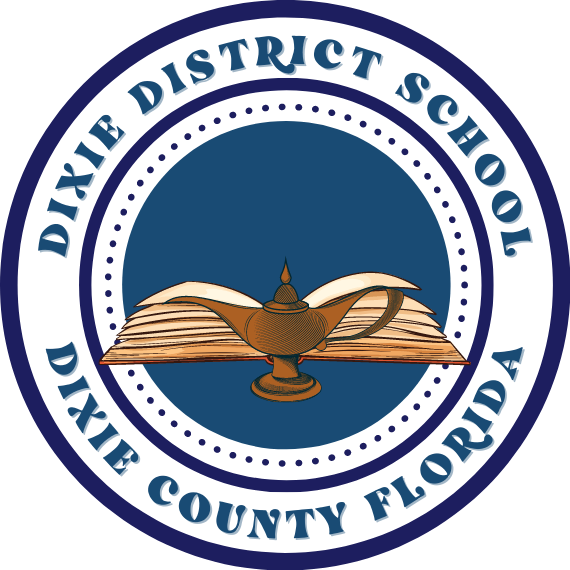CHAPTER 5.00 - STUDENTS
5.15 Administration Of Medication
POLICY:
I. Administration of Prescription Medication
A. Each school principal shall designate a staff member(s) to administer prescribed medications. The staff member(s) shall be trained annually by the registered nurse at each school.
B. Administration of prescription medications during school hours is discouraged unless a physician determines that a student’s health needs require medication during school hours. The Health Services Plan and the Code of Student Conduct shall set forth provisions for administering prescription medications.
C. All prescription medications shall be delivered to the office/clinic with the following information provided:
1. Student’s name;
2. Name of medication;
3. Date of prescription and pharmacy;
4. Specific instructions on the administration of the medication;
5. Approximate duration of medication
6. Medication will be counted with two (2) persons signing.
D. A medication consent form signed by the student’s parent(s), as defined by Florida Statutes, to grant permission for administering the prescription medication must be on file in the School Health Room.
E. First dosage of any new medication shall not be administered during school hours because of the possibility of an allergic reaction.
F. Prescription medication, which is kept at school, shall be stored in a secure location under lock and key, as designated by the school principal, with the student’s name attached. Only authorized staff who administer said medication shall have access to it.
G. A student with a special health condition(s) such as asthma, diabetes, pancreatic insufficiency, cystic fibrosis or hypersensitivity may carry prescription medication for emergency situations on self if approved by his/her physician and his/her parent. The approval of the physician and the parent and information regarding the medication required must be on file in the office/clinic. A student who has permission to self-administer emergency medication may carry the medication on the school bus or at any school related activity. The principal shall notify the bus driver and the transportation department regarding such students.
H. A record shall be maintained on each student who receives a prescription medication during school hours, including the time each dose of prescription medication was administered. These records shall be made available at all times to the principal and authorized staff.
I. Field Trips – The requirements for the administration of medication while students are away from school property or on official school business shall be the same as those while on school property. All medications including nonprescription medications that are taken on field trips or other official school business must be in the original container. Only trained personnel will administer medication away from the school site except for students who have permission to self-administer emergency medications.
J. A student may possess and use a medication regulated by the US Food and Drug Administration for over-the-counter use to treat and/or relieve headaches while on school property or at a school-sponsored event or activity without a physician’s note or prescription.
II. Administration of Emergency Medication
A. Schools may purchase and maintain a supply of epinephrine auto- injectors to use when a student is having an anaphylactic reaction. The medication shall be kept in a locked, secure location accessible only to trained personnel.
B. The School Board shall adopt a protocol, developed by a licensed physician, for the administration of epinephrine in emergency situations.
C. Only school personnel who are trained to recognize an anaphylactic reaction and certified to administer an epinephrine auto-injector or a person who is authorized by an authorized health care practitioner shall be permitted to administer this medication; however, the auto-injector may be given to a student who is authorized to self-administer an epinephrine auto-injector.
D. All schools serving students in K-8 shall provide training to an adequate number of school personnel and contracted personnel on the recognition of an anaphylactic reaction and the administration of epinephrine delivery device.
E. Under the provisions of Florida Statutes, the District trained and certified personnel, or an uncertified person who administers an epinephrine auto injector under the authorization of an authorized health care provider shall not be liable for any injury resulting from the administration of an auto injector provided that school personnel were trained or authorized as provided by law, followed the established protocol and believed that the student was having an anaphylactic reaction.
F. For a student in grades K-8 that has an emergency action plan for anaphylaxis, the plan must be accessible at all times when the student is on school grounds, whether during the school day or participating at school in school-sponsored activities.
G. Emergency Opioid Antagonist (“EOA”). The School Board recognizes that the opioid epidemic is a public health crisis and access opioid-related overdose reversal medication can be life-saving. The following protocols for the administration of EOA in emergency situations are adopted to assist a person at risk of experiencing an opioid-related overdose.
1. Definitions
a. Drug overdose: an acute medical condition, including, but not limited to, severe physical illness, coma, mania, hysteria or death, which is the result of consumption or use of one or more controlled substances causing an adverse reaction.
b. Emergency Opioid Antagonist (EOA): is a medication that may be obtained, pursuant to state law, and used to treat individuals who are experiencing, or may be experiencing, an opioid related overdose.
c. Opioids are illegal drugs including, but not limited to, heroin, as well as prescription medications used to treat pain such as morphine, codeine, methadone, oxycodone (OxyContin, Percodan, Percocet), hydrocodone (Vicodin), fentanyl, hydromorphone (Dilaudid), and buprenorphine.
2. The Superintendent shall adopt Administrative Guidelines governing the procurement, maintenance and use of Narcan at school, for use in emergency situations and emergency notification requirements. The Superintendent will consult with a licensed health professional when developing the Administrative Guidelines.
3. The Administrative Guidelines shall:
a. Specify the individuals (by position) employed by the School Board who may, in accordance with law, procure Narcan;
b. Include the physician-established protocol(s), as required by law;
c. Identify the location(s) in each school building where Narcan shall be stored;
d. Specify the conditions under which Narcan must be stored, replaced, and disposed of;
e. Specify the individuals (by position) employed by or under contract with the School Board, in addition to a licensed school nurse, who are authorized to access and use Narcan in emergency situations;
f. Specify the training that Board employees or contractors must complete before being authorized to access and administer Narcan; and g. Specify that the assistance from an emergency medical service provider (911) must be requested as soon as practicable before or after Narcan is administered.
4. To the extent provided by law, the Board, its members, employees and contractors shall not be liable civilly for acts or omissions associated with procuring, maintaining, accessing, or using Narcan in emergency situations as prescribed by this policy and any administrative guidelines.
5. Delegation of Responsibility:
a. The Florida Department of Health shall provide and annually renew a standing order of Narcan to students, staff members, or other individuals believed or suspected to be experiencing an opioid overdose on school grounds or at a school sponsored activity, at which the school nurse or any other individual properly trained to administer Narcan is present as permitted by this policy.
The standing order shall include at least the following information:
I. Type of Naloxone (intranasal and/or auto-injector)
II. Date of issuance
III. Dosage
IV. Signature of the authorized physician from the Florida Department of Health
b. The standing order shall be maintained in each school clinic and location where Narcan is stored.
6. Acquisition, Storage and Disposal
a. The school nurse(s) shall obtain sufficient supplies of Narcan pursuant to the standing order in the same manner as other medical supplies are acquired for the school health program.
b. The school nurse or designee shall regularly inventory and refresh Narcan stocks, and maintain records thereof, in accordance with Administrative Guidelines, manufacturer’s recommendations and any applicable Department of Health guidelines.
c. Narcan shall be safely stored in accordance with the drug manufacturer's instructions in the school clinic or other location(s) designated by the school nurse that is only accessible by the individual’s authorized to administer Narcan.
7. Training
a. School nurses shall be trained in the use of Narcan by the Dixie County Department of Health.
b. School departments are encouraged to send other staff to be trained, including but not limited to coaches, school counselors, teachers, etc.
c. Training for designated staff shall occur annually prior to the beginning of each school year and throughout the year, as needed.
8. Parent Notification
a. Prior notice to the parents of a student of the administration of Narcan is not required.
b. If Narcan has been administered to a student, immediately following the administration, the school staff shall provide notice to the parent/guardian of the student who received Narcan.
STATUTORY AUTHORITY : 1001.41; 1001.42, F.S.
LAWS IMPLEMENTED: 381.88, 381.885, 768.13; 1000.21; 1001.43; 1002.20; 1002.22; 1006.062, 1014.06 F.S.
STATE BOARD OF EDUCATION RULE(S): 6A-6.0251, 6A-6.0252, 6A-6.0253 STATE DEPARTMENT OF HEALTH RULES(S): 64F 6.004
History: Adopted: January 14, 1999
Revision Date(s): September 12, 2006; February 10, 2015; April 11, 2017; January 8, 2019; October 11, 2022; June 29, 2023; January 11, 2024; October 14, 2025
Formerly:


